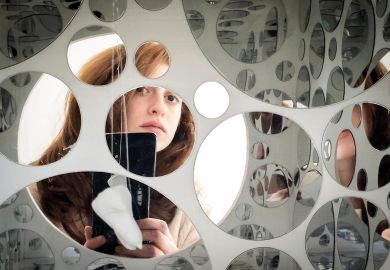Ditching a smart suit for shorts and sandals might seem a sensible choice as temperatures soar this summer.
But dressing down may have deleterious professional consequences for academics, a new study suggests.
Scholars who wear casual clothes are seen as less likeable and approachable than those who don business suits or smart-casual attire, according to a paper published in the Journal of Higher Education Policy and Management.
Conducted at an unnamed creative arts college in America, almost 1,000 students were asked to rate photographs of lecturers dressed in three different outfits: casual, business-casual and business-professional.
Academics wearing smarter outfits tended to score more highly on approachability and likeability with the 112 students who responded to the experiment, which was conducted by Amber Chatelain, from the department for family and consumer sciences at Eastern Kentucky University.
That result, albeit based on a small sample, surprised Dr Chatelain, who expected students doing fashion, video production and graphic design to favour a more liberal dress code, particularly as these industries are generally populated with people wearing more casual clothing.
“No matter what academic discipline they study, [students] still expect academics to dress professionally within the walls of the post-secondary environment,” she concludes.
Institutions may wish to advise academics on what to wear if they wish to be seen as likeable to students, while lecturers should also consider dressing more smartly, she adds.
She told Times Higher Education that despite attempts to reverse the “cultural normality” associated with a focus on outward appearance, “we still make snap judgements on an individual’s personality and characteristics based on appearance alone”.
“And this goes for everybody, not just those in higher education. I think this is why, even at an academic institution where it is standard in the culture and industry to dress casually, students still prefer their faculty to ‘look the part’ of the academic.”
Dr Chatelain’s results also found variations in the way men and women were perceived according to their attire, which she believed required a renewed “conversation on gender inequality and perceptions of men and women in the workplace”.
Earlier this year a mass email to students at Rutgers School of Law from Adam Scales, its vice-dean, attacked sexist comments in evaluations directed at female academics’ attire.
However, Dr Chatelain said the root cause of this problem lay in attitudes outside academia.
“Methods and strategies to overcome student bias towards women academics isn’t the issue here. The fact that there have to be methods and strategies to overcome student bias towards women academics is.
“Instead of telling women how to dress more smartly, perhaps we should steer the conversation toward gender inequality in the workplace, the portrayal of women in the media etc., and start at the root of the problem.”
POSTSCRIPT:
Print headline: Sartorial no-nos of scholarly attire
Register to continue
Why register?
- Registration is free and only takes a moment
- Once registered, you can read 3 articles a month
- Sign up for our newsletter
Subscribe
Or subscribe for unlimited access to:
- Unlimited access to news, views, insights & reviews
- Digital editions
- Digital access to THE’s university and college rankings analysis
Already registered or a current subscriber? Login




